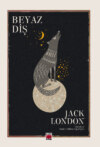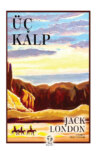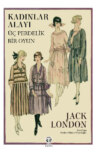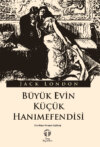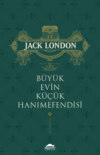Kitabı oku: «Revolution, and Other Essays», sayfa 5
The year 1925 was a lively year in the world’s history. Goliah ruled the world with a strong hand. Kings and emperors journeyed to Palgrave Island, saw the wonders of Energon, and went away, with the fear of death in their hearts, to abdicate thrones and crowns and hereditary licenses. When Goliah spoke to politicians (so-called “statesmen”), they obeyed.. or died. He dictated universal reforms, dissolved refractory parliaments, and to the great conspiracy that was formed of mutinous money lords and captains of industry he sent his destroying angels. “The time is past for fooling,” he told them. “You are anachronisms. You stand in the way of humanity. To the scrap-heap with you.” To those that protested, and they were many, he said: “This is no time for logomachy. You can argue for centuries. It is what you have done in the past. I have no time for argument. Get out of the way.”
With the exception of putting a stop to war, and of indicating the broad general plan, Goliah did nothing. By putting the fear of death into the hearts of those that sat in the high places and obstructed progress, Goliah made the opportunity for the unshackled intelligence of the best social thinkers of the world to exert itself. Goliah left all the multitudinous details of reconstruction to these social thinkers. He wanted them to prove that they were able to do it, and they proved it. It was due to their initiative that the white plague was stamped out from the world. It was due to them, and in spite of a deal of protesting from the sentimentalists, that all the extreme hereditary inefficients were segregated and denied marriage.
Goliah had nothing whatever to do with the instituting of the colleges of invention. This idea originated practically simultaneously in the minds of thousands of social thinkers. The time was ripe for the realization of the idea, and everywhere arose the splendid institutions of invention. For the first time the ingenuity of man was loosed upon the problem of simplifying life, instead of upon the making of money-earning devices. The affairs of life, such as house-cleaning, dish and window-washing, dust-removing, and scrubbing and clothes-washing, and all the endless sordid and necessary details, were simplified by invention until they became automatic. We of to-day cannot realize the barbarously filthy and slavish lives of those that lived prior to 1925.
The international government of the world was another idea that sprang simultaneously into the minds of thousands. The successful realization of this idea was a surprise to many, but as a surprise it was nothing to that received by the mildly protestant sociologists and biologists when irrefutable facts exploded the doctrine of Malthus. With leisure and joy in the world; with an immensely higher standard of living; and with the enormous spaciousness of opportunity for recreation, development, and pursuit of beauty and nobility and all the higher attributes, the birth-rate fell, and fell astoundingly. People ceased breeding like cattle. And better than that, it was immediately noticeable that a higher average of children was being born. The doctrine of Malthus was knocked into a cocked hat – or flung to the scrap-heap, as Goliah would have put it.
All that Goliah had predicted that the intelligence of mankind could accomplish with the mechanical energy at its disposal, came to pass. Human dissatisfaction practically disappeared. The elderly people were the great grumblers; but when they were honourably pensioned by society, as they passed the age limit for work, the great majority ceased grumbling. They found themselves better off in their idle old days under the new regime, enjoying vastly more pleasure and comforts than they had in their busy and toilsome youth under the old regime. The younger generation had easily adapted itself too the changed order, and the very young had never known anything else. The sum of human happiness had increased enormously. The world had become gay and sane. Even the old fogies of professors of sociology, who had opposed with might and main the coming of the new regime, made no complaint. They were a score of times better remunerated than in the old days, and they were not worked nearly so hard. Besides, they were busy revising sociology and writing new text-books on the subject. Here and there, it is true, there were atavisms, men who yearned for the flesh-pots and cannibal-feasts of the old alleged “individualism,” creatures long of teeth and savage of claw who wanted to prey upon their fellow-men; but they were looked upon as diseased, and were treated in hospitals. A small remnant, however, proved incurable, and was confined in asylums and denied marriage. Thus there was no progeny to inherit their atavistic tendencies.
As the years went by, Goliah dropped out of the running of the world. There was nothing for him to run. The world was running itself, and doing it smoothly and beautifully. In 1937, Goliah made his long-promised present of Energon to the world. He himself had devised a thousand ways in which the little giant should do the work of the world – all of which he made public at the same time. But instantly the colleges of invention seized upon Energon and utilized it in a hundred thousand additional ways. In fact, as Goliah confessed in his letter of March 1938, the colleges of invention cleared up several puzzling features of Energon that had baffled him during the preceding years. With the introduction of the use of Energon the two-hour work-day was cut down almost to nothing. As Goliah had predicted, work indeed became play. And, so tremendous was man’s productive capacity, due to Energon and the rational social utilization of it, that the humblest citizen enjoyed leisure and time and opportunity for an immensely greater abundance of living than had the most favoured under the old anarchistic system.
Nobody had ever seen Goliah, and all peoples began to clamour for their saviour to appear. While the world did not minimize his discovery of Energon, it was decided that greater than that was his wide social vision. He was a superman, a scientific superman; and the curiosity of the world to see him had become wellnigh unbearable. It was in 1941, after much hesitancy on his part, that he finally emerged from Palgrave Island. He arrived on June 6 in San Francisco, and for the first time, since his retirement to Palgrave Island, the world looked upon his face. And the world was disappointed. Its imagination had been touched. An heroic figure had been made out of Goliah. He was the man, or the demi-god, rather, who had turned the planet over. The deeds of Alexander, Cæsar, Genghis Khan, and Napoleon were as the play of babes alongside his colossal achievements.
And ashore in San Francisco and through its streets stepped and rode a little old man, sixty-five years of age, well preserved, with a pink-and-white complexion and a bald spot on his head the size of an apple. He was short-sighted and wore spectacles. But when the spectacles were removed, his were quizzical blue eyes like a child’s, filled with mild wonder at the world. Also his eyes had a way of twinkling, accompanied by a screwing up of the face, as if he laughed at the huge joke he had played upon the world, trapping it, in spite of itself, into happiness and laughter.
For a scientific superman and world tyrant, he had remarkable weaknesses. He loved sweets, and was inordinately fond of salted almonds and salted pecans, especially of the latter. He always carried a paper bag of them in his pocket, and he had a way of saying frequently that the chemism of his nature demanded such fare. Perhaps his most astonishing failing was cats. He had an ineradicable aversion to that domestic animal. It will be remembered that he fainted dead away with sudden fright, while speaking in Brotherhood Palace, when the janitor’s cat walked out upon the stage and brushed against his legs.
But no sooner had he revealed himself to the world than he was identified. Old-time friends had no difficulty in recognizing him as Percival Stultz, the German-American who, in 1898, had worked in the Union Iron Works, and who, for two years at that time, had been secretary of Branch 369 of the International Brotherhood of Machinists. It was in 1901, then twenty-five years of age, that he had taken special scientific courses at the University of California, at the same time supporting himself by soliciting what was then known as “life insurance.” His records as a student are preserved in the university museum, and they are unenviable. He is remembered by the professors he sat under chiefly for his absent-mindedness. Undoubtedly, even then, he was catching glimpses of the wide visions that later were to be his.
His naming himself “Goliah” and shrouding himself in mystery was his little joke, he later explained. As Goliah, or any other thing like that, he said, he was able to touch the imagination of the world and turn it over; but as Percival Stultz, wearing side-whiskers and spectacles, and weighing one hundred and eighteen pounds, he would have been unable to turn over a pecan – “not even a salted pecan.”
But the world quickly got over its disappointment in his personal appearance and antecedents. It knew him and revered him as the master-mind of the ages; and it loved him for himself, for his quizzical short-sighted eyes and the inimitable way in which he screwed up his face when he laughed; it loved him for his simplicity and comradeship and warm humanness, and for his fondness for salted pecans and his aversion to cats. And to-day, in the wonder-city of Asgard, rises in awful beauty that monument to him that dwarfs the pyramids and all the monstrous blood-stained monuments of antiquity. And on that monument, as all know, is inscribed in imperishable bronze the prophecy and the fulfilment: “All will be joy-smiths, and their task shall be to beat out laughter from the ringing anvil of life.”
[Editorial Note. – This remarkable production is the work of Harry Beckwith, a student in the Lowell High School of San Francisco, and it is here reproduced chiefly because of the youth of its author. Far be it from our policy to burden our readers with ancient history; and when it is known that Harry Beckwith was only fifteen when the fore-going was written, our motive will be understood. “Goliah” won the Premier for high school composition in 2254, and last year Harry Beckwith took advantage of the privilege earned, by electing to spend six months in Asgard. The wealth of historical detail, the atmosphere of the times, and the mature style of the composition are especially noteworthy in one so young.]
THE GOLDEN POPPY
I have a poppy field. That is, by the grace of God and the good-nature of editors, I am enabled to place each month divers gold pieces into a clerical gentleman’s hands, and in return for said gold pieces I am each month reinvested with certain proprietary-rights in a poppy field. This field blazes on the rim of the Piedmont Hills. Beneath lies all the world. In the distance, across the silver sweep of bay, San Francisco smokes on her many hills like a second Rome. Not far away, Mount Tamalpais thrusts a rugged shoulder into the sky; and midway between is the Golden Gate, where sea mists love to linger. From the poppy field we often see the shimmering blue of the Pacific beyond, and the busy ships that go for ever out and in.
“We shall have great joy in our poppy field,” said Bess. “Yes,” said I; “how the poor city folk will envy when they come to see us, and how we will make all well again when we send them off with great golden armfuls!”
“But those things will have to come down,” I added, pointing to numerous obtrusive notices (relics of the last tenant) displayed conspicuously along the boundaries, and bearing, each and all, this legend:
“Private Grounds. No Trespassing.”
“Why should we refuse the poor city folk a ramble over our field, because, forsooth, they have not the advantage of our acquaintance?”
“How I abhor such things,” said Bess; “the arrogant symbols of power.”
“They disgrace human nature,” said I.
“They shame the generous landscape,” she said, “and they are abominable.”
“Piggish!” quoth I, hotly. “Down with them!”
We looked forward to the coming of the poppies, did Bess and I, looked forward as only creatures of the city may look who have been long denied. I have forgotten to mention the existence of a house above the poppy field, a squat and wandering bungalow in which we had elected to forsake town traditions and live in fresher and more vigorous ways. The first poppies came, orange-yellow and golden in the standing grain, and we went about gleefully, as though drunken with their wine, and told each other that the poppies were there. We laughed at unexpected moments, in the midst of silences, and at times grew ashamed and stole forth secretly to gaze upon our treasury. But when the great wave of poppy-flame finally spilled itself down the field, we shouted aloud, and danced, and clapped our hands, freely and frankly mad.
And then came the Goths. My face was in a lather, the time of the first invasion, and I suspended my razor in mid-air to gaze out on my beloved field. At the far end I saw a little girl and a little boy, their arms filled with yellow spoil. Ah, thought I, an unwonted benevolence burgeoning, what a delight to me is their delight! It is sweet that children should pick poppies in my field. All summer shall they pick poppies in my field. But they must be little children, I added as an afterthought, and they must pick from the lower end – this last prompted by a glance at the great golden fellows nodding in the wheat beneath my window. Then the razor descended. Shaving was always an absorbing task, and I did not glance out of the window again until the operation was completed. And then I was bewildered. Surely this was not my poppy field. No – and yes, for there were the tall pines clustering austerely together on one side, the magnolia tree burdened with bloom, and the Japanese quinces splashing the driveway hedge with blood. Yes, it was the field, but no wave of poppy-flame spilled down it, nor did the great golden fellows nod in the wheat beneath my window. I rushed into a jacket and out of the house. In the far distance were disappearing two huge balls of colour, orange and yellow, for all the world like perambulating poppies of cyclopean breed.
“Johnny,” said I to the nine-year-old son of my sister, “Johnny, whenever little girls come into our field to pick poppies, you must go down to them, and in a very quiet and gentlemanly manner, tell them it is not allowed.”
Warm days came, and the sun drew another blaze from the free-bosomed earth. Whereupon a neighbour’s little girl, at the behest of her mother, duly craved and received permission from Bess to gather a few poppies for decorative purposes. But of this I was uninformed, and when I descried her in the midst of the field I waved my arms like a semaphore against the sky.
“Little girl!” called I. “Little girl!”
The little girl’s legs blurred the landscape as she fled, and in high elation I sought Bess to tell of the potency of my voice. Nobly she came to the rescue, departing forthwith on an expedition of conciliation and explanation to the little girl’s mother. But to this day the little girl seeks cover at sight of me, and I know the mother will never be as cordial as she would otherwise have been.
Came dark, overcast days, stiff, driving winds, and pelting rains, day on day, without end, and the city folk cowered in their dwelling-places like flood-beset rats; and like rats, half-drowned and gasping, when the weather cleared they crawled out and up the green Piedmont slopes to bask in the blessed sunshine. And they invaded my field in swarms and droves, crushing the sweet wheat into the earth and with lustful hands ripping the poppies out by the roots.
“I shall put up the warnings against trespassing,” I said.
“Yes,” said Bess, with a sigh. “I’m afraid it is necessary.”
The day was yet young when she sighed again:
“I’m afraid, O Man, that your signs are of no avail. People have forgotten how to read, these days.”
I went out on the porch. A city nymph, in cool summer gown and picture hat, paused before one of my newly reared warnings and read it through with care. Profound deliberation characterized her movements. She was statuesquely tall, but with a toss of the head and a flirt of the skirt she dropped on hands and knees, crawled under the fence, and came to her feet on the inside with poppies in both her hands. I walked down the drive and talked ethically to her, and she went away. Then I put up more signs.
At one time, years ago, these hills were carpeted with poppies. As between the destructive forces and the will “to live,” the poppies maintained an equilibrium with their environment. But the city folk constituted a new and terrible destructive force, the equilibrium was overthrown, and the poppies wellnigh perished. Since the city folk plucked those with the longest stems and biggest bowls, and since it is the law of kind to procreate kind, the long-stemmed, big-bowled poppies failed to go to seed, and a stunted, short-stemmed variety remained to the hills. And not only was it stunted and short-stemmed, but sparsely distributed as well. Each day and every day, for years and years, the city folk swarmed over the Piedmont Hills, and only here and there did the genius of the race survive in the form of miserable little flowers, close-clinging and quick-blooming, like children of the slums dragged hastily and precariously through youth to a shrivelled and futile maturity.
On the other hand, the poppies had prospered in my field; and not only had they been sheltered from the barbarians, but also from the birds. Long ago the field was sown in wheat, which went to seed unharvested each year, and in the cool depths of which the poppy seeds were hidden from the keen-eyed songsters. And further, climbing after the sun through the wheat stalks, the poppies grew taller and taller and more royal even than the primordial ones of the open.
So the city folk, gazing from the bare hills to my blazing, burning field, were sorely tempted, and, it must be told, as sorely fell. But no sorer was their fall than that of my beloved poppies. Where the grain holds the dew and takes the bite from the sun the soil is moist, and in such soil it is easier to pull the poppies out by the roots than to break the stalk. Now the city folk, like other folk, are inclined to move along the line of least resistance, and for each flower they gathered, there were also gathered many crisp-rolled buds and with them all the possibilities and future beauties of the plant for all time to come.
One of the city folk, a middle-aged gentleman, with white hands and shifty eyes, especially made life interesting for me. We called him the “Repeater,” what of his ways. When from the porch we implored him to desist, he was wont slowly and casually to direct his steps toward the fence, simulating finely the actions of a man who had not heard, but whose walk, instead, had terminated of itself or of his own volition. To heighten this effect, now and again, still casually and carelessly, he would stoop and pluck another poppy. Thus did he deceitfully save himself the indignity of being put out, and rob us of the satisfaction of putting him out, but he came, and he came often, each time getting away with an able-bodied man’s share of plunder.
It is not good to be of the city folk. Of this I am convinced. There is something in the mode of life that breeds an alarming condition of blindness and deafness, or so it seems with the city folk that come to my poppy field. Of the many to whom I have talked ethically not one has been found who ever saw the warnings so conspicuously displayed, while of those called out to from the porch, possibly one in fifty has heard. Also, I have discovered that the relation of city folk to country flowers is quite analogous to that of a starving man to food. No more than the starving man realizes that five pounds of meat is not so good as an ounce, do they realize that five hundred poppies crushed and bunched are less beautiful than two or three in a free cluster, where the green leaves and golden bowls may expand to their full loveliness.
Less forgivable than the unæsthetic are the mercenary. Hordes of young rascals plunder me and rob the future that they may stand on street corners and retail “California poppies, only five cents a bunch!” In spite of my precautions some of them made a dollar a day out of my field. One horde do I remember with keen regret. Reconnoitring for a possible dog, they applied at the kitchen door for “a drink of water, please.” While they drank they were besought not to pick any flowers. They nodded, wiped their mouths, and proceeded to take themselves off by the side of the bungalow. They smote the poppy field beneath my windows, spread out fan-shaped six wide, picking with both hands, and ripped a swath of destruction through the very heart of the field. No cyclone travelled faster or destroyed more completely. I shouted after them, but they sped on the wings of the wind, great regal poppies, broken-stalked and mangled, trailing after them or cluttering their wake – the most high-handed act of piracy, I am confident, ever committed off the high seas.
One day I went a-fishing, and on that day a woman entered the field. Appeals and remonstrances from the porch having no effect upon her, Bess despatched a little girl to beg of her to pick no more poppies. The woman calmly went on picking. Then Bess herself went down through the heat of the day. But the woman went on picking, and while she picked she discussed property and proprietary rights, denying Bess’s sovereignty until deeds and documents should be produced in proof thereof. And all the time she went on picking, never once overlooking her hand. She was a large woman, belligerent of aspect, and Bess was only a woman and not prone to fisticuffs. So the invader picked until she could pick no more, said “Good-day,” and sailed majestically away.
“People have really grown worse in the last several years, I think,” said Bess to me in a tired sort of voice that night, as we sat in the library after dinner.
Next day I was inclined to agree with her. “There’s a woman and a little girl heading straight for the poppies,” said May, a maid about the bungalow. I went out on the porch and waited their advent. They plunged through the pine trees and into the fields, and as the roots of the first poppies were pulled I called to them. They were about a hundred feet away. The woman and the little girl turned to the sound of my voice and looked at me. “Please do not pick the poppies,” I pleaded. They pondered this for a minute; then the woman said something in an undertone to the little girl, and both backs jack-knifed as the slaughter recommenced. I shouted, but they had become suddenly deaf. I screamed, and so fiercely that the little girl wavered dubiously. And while the woman went on picking I could hear her in low tones heartening the little girl.
I recollected a siren whistle with which I was wont to summon Johnny, the son of my sister. It was a fearsome thing, of a kind to wake the dead, and I blew and blew, but the jack-knifed backs never unclasped. I do not mind with men, but I have never particularly favoured physical encounters with women; yet this woman, who encouraged a little girl in iniquity, tempted me.
I went into the bungalow and fetched my rifle. Flourishing it in a sanguinary manner and scowling fearsomely, I charged upon the invaders. The little girl fled, screaming, to the shelter of the pines, but the woman calmly went on picking. She took not the least notice. I had expected her to run at sight of me, and it was embarrassing. There was I, charging down the field like a wild bull upon a woman who would not get out of the way. I could only slow down, supremely conscious of how ridiculous it all was. At a distance of ten feet she straightened up and deigned to look at me. I came to a halt and blushed to the roots of my hair. Perhaps I really did frighten her (I sometimes try to persuade myself that this is so), or perhaps she took pity on me; but, at any rate, she stalked out of my field with great composure, nay, majesty, her arms brimming with orange and gold.
Nevertheless, thenceforward I saved my lungs and flourished my rifle. Also, I made fresh generalizations. To commit robbery women take advantage of their sex. Men have more respect for property than women. Men are less insistent in crime than women. And women are less afraid of guns than men. Likewise, we conquer the earth in hazard and battle by the virtues of our mothers. We are a race of land-robbers and sea-robbers, we Anglo-Saxons, and small wonder, when we suckle at the breasts of a breed of women such as maraud my poppy field.
Still the pillage went on. Sirens and gun-flourishings were without avail. The city folk were great of heart and undismayed, and I noted the habit of “repeating” was becoming general. What booted it how often they were driven forth if each time they were permitted to carry away their ill-gotten plunder? When one has turned the same person away twice and thrice an emotion arises somewhat akin to homicide. And when one has once become conscious of this sanguinary feeling his whole destiny seems to grip hold of him and drag him into the abyss. More than once I found myself unconsciously pulling the rifle into position to get a sight on the miserable trespassers. In my sleep I slew them in manifold ways and threw their carcasses into the reservoir. Each day the temptation to shoot them in the legs became more luring, and every day I felt my fate calling to me imperiously. Visions of the gallows rose up before me, and with the hemp about my neck I saw stretched out the pitiless future of my children, dark with disgrace and shame. I became afraid of myself, and Bess went about with anxious face, privily beseeching my friends to entice me into taking a vacation. Then, and at the last gasp, came the thought that saved me: Why not confiscate? If their forays were bootless, in the nature of things their forays would cease.
The first to enter my field thereafter was a man.
I was waiting for him – And, oh joy! it was the “Repeater” himself, smugly complacent with knowledge of past success. I dropped the rifle negligently across the hollow of my arm and went down to him.
“I am sorry to trouble you for those poppies,” I said in my oiliest tones; “but really, you know, I must have them.”
He regarded me speechlessly. It must have made a great picture. It surely was dramatic. With the rifle across my arm and my suave request still ringing in my ears, I felt like Black Bart, and Jesse James, and Jack Sheppard, and Robin Hood, and whole generations of highwaymen.
“Come, come,” I said, a little sharply and in what I imagined was the true fashion; “I am sorry to inconvenience you, believe me, but I must have those poppies.”
I absently shifted the gun and smiled. That fetched him. Without a word he passed them over and turned his toes toward the fence, but no longer casual and careless was his carriage, I nor did he stoop to pick the occasional poppy by the way. That was the last of the “Repeater.” I could see by his eyes that he did not like me, and his back reproached me all the way down the field and out of sight.
From that day the bungalow has been flooded with poppies. Every vase and earthen jar is filled with them. They blaze on every mantel and run riot through all the rooms. I present them to my friends in huge bunches, and still the kind city folk come and gather more for me. “Sit down for a moment,” I say to the departing guest. And there we sit in the shade of the porch while aspiring city creatures pluck my poppies and sweat under the brazen sun. And when their arms are sufficiently weighted with my yellow glories, I go down with the rifle over my arm and disburden them. Thus have I become convinced that every situation has its compensations.
Confiscation was successful, so far as it went; but I had forgotten one thing; namely, the vast number of the city folk. Though the old transgressors came no more, new ones arrived every day, and I found myself confronted with the titanic task of educating a whole cityful to the inexpediency of raiding my poppy field. During the process of disburdening them I was accustomed to explaining my side of the case, but I soon gave this over. It was a waste of breath. They could not understand. To one lady, who insinuated that I was miserly, I said:
“My dear madam, no hardship is worked upon you. Had I not been parsimonious yesterday and the day before, these poppies would have been picked by the city hordes of that day and the day before, and your eyes, which to-day have discovered this field, would have beheld no poppies at all. The poppies you may not pick to-day are the poppies I did not permit to be picked yesterday and the day before. Therefore, believe me, you are denied nothing.”
“But the poppies are here to-day,” she said, glaring carnivorously upon their glow and splendour.
“I will pay you for them,” said a gentleman, at another time. (I had just relieved him of an armful.) I felt a sudden shame, I know not why, unless it be that his words had just made clear to me that a monetary as well as an æsthetic value was attached to my flowers. The apparent sordidness of my position overwhelmed me, and I said weakly: “I do not sell my poppies. You may have what you have picked.” But before the week was out I confronted the same gentleman again. “I will pay you for them,” he said. “Yes,” I said, “you may pay me for them. Twenty dollars, please.” He gasped, looked at me searchingly, gasped again, and silently and sadly put the poppies down. But it remained, as usual, for a woman to attain the sheerest pitch of audacity. When I declined payment and demanded my plucked beauties, she refused to give them up. “I picked these poppies,” she said, “and my time is worth money. When you have paid me for my time you may have them.” Her cheeks flamed rebellion, and her face, withal a pretty one, was set and determined. Now, I was a man of the hill tribes, and she a mere woman of the city folk, and though it is not my inclination to enter into details, it is my pleasure to state that that bunch of poppies subsequently glorified the bungalow and that the woman departed to the city unpaid. Anyway, they were my poppies.

